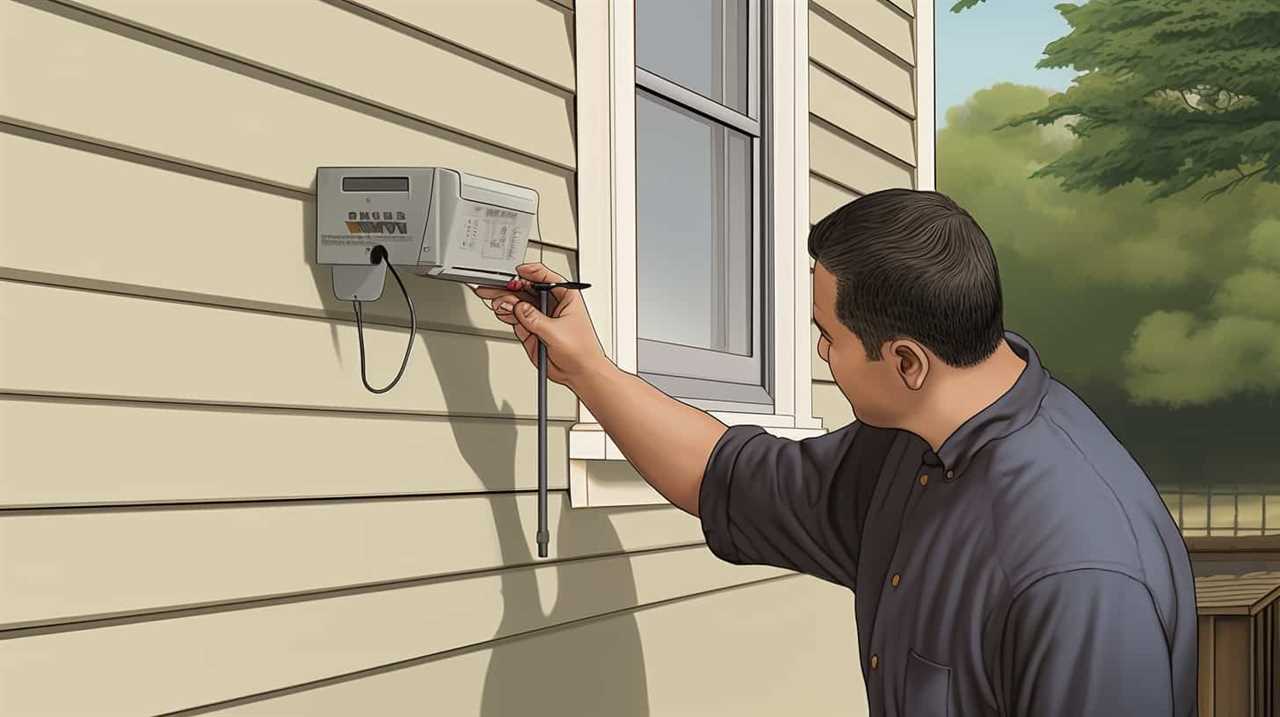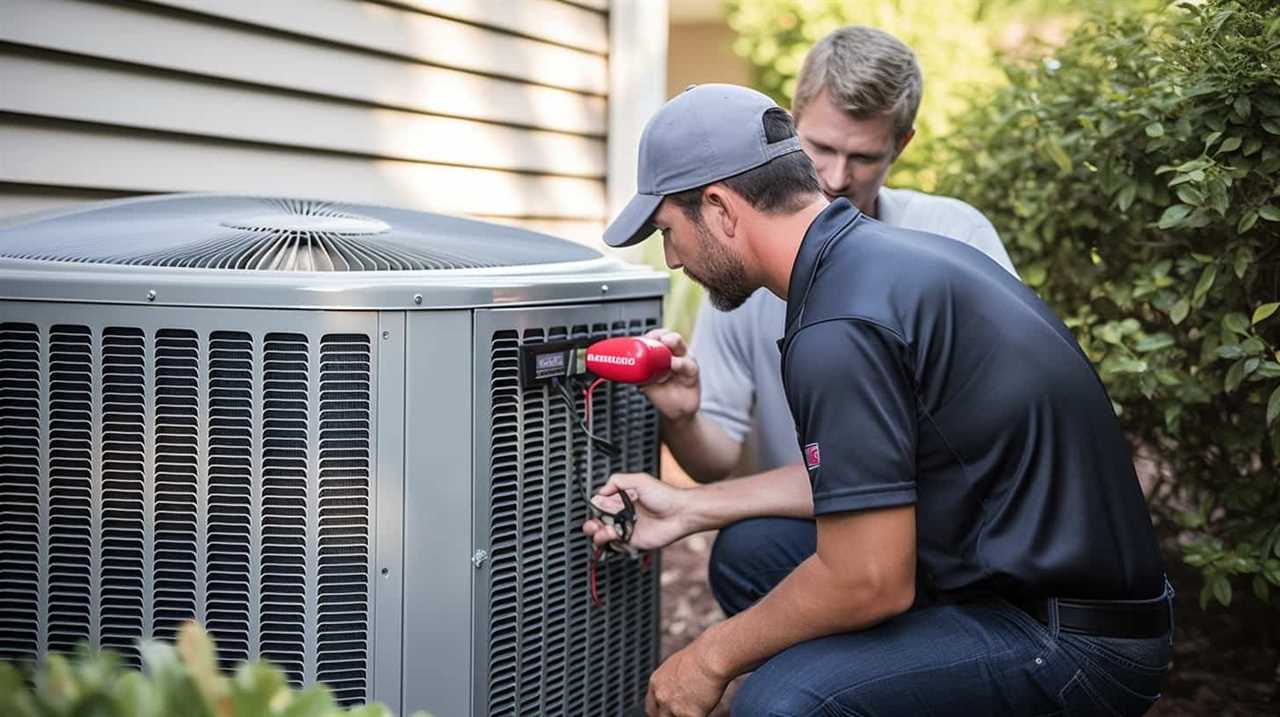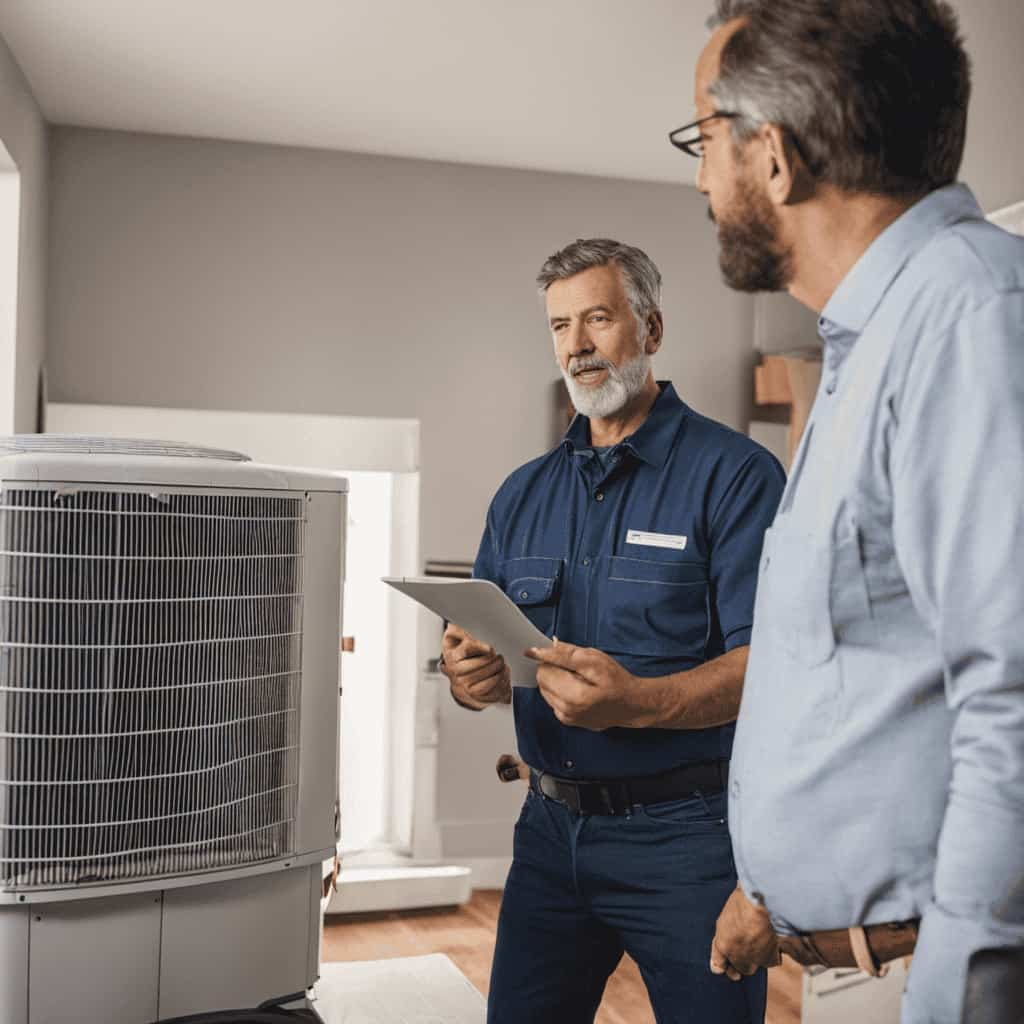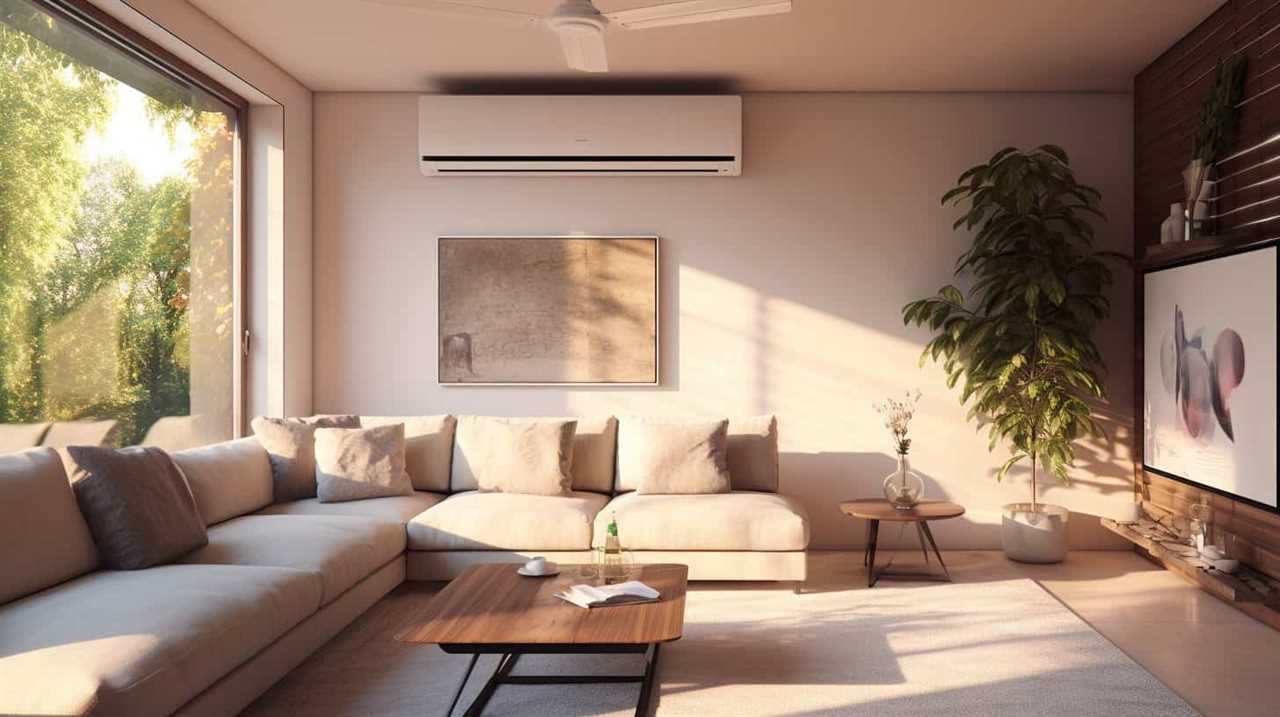Are you fed up with rising electricity costs? We have the perfect solution for you.
In this article, we will show you how to maximize heat pump efficiency and enjoy relief on your power bill.
We’ll guide you through understanding energy ratings, choosing the right size pump, maintaining insulation, and optimizing settings for maximum efficiency.
Plus, we’ll explore additional energy-saving features that will set you on the path to freedom from high bills.

Let’s dive in!
Key Takeaways
- Understanding heat pump efficiency is essential for reducing power bills and energy consumption.
- Choosing the right size heat pump is crucial for maximizing energy efficiency and comfort.
- Proper insulation and sealing play a significant role in heat pump efficiency.
- Optimizing heat pump settings and exploring additional energy-saving features can further enhance efficiency and provide power bill relief.
Understanding Heat Pump Energy Efficiency Ratings
Let’s dive into the topic of understanding heat pump energy efficiency ratings.
When it comes to heat pump installation, it’s important to consider energy efficiency ratings as they can greatly impact your power bill. The efficiency of a heat pump is measured by its seasonal energy efficiency ratio (SEER) and heating seasonal performance factor (HSPF).
The SEER rating indicates the cooling efficiency of the heat pump, while the HSPF rating measures its heating efficiency. Higher SEER and HSPF ratings mean greater energy efficiency, resulting in lower energy consumption and cost savings.

To maximize energy savings, consider these energy saving tips: ensure proper insulation in your home, seal ductwork leaks, and regularly maintain your heat pump.
Choosing the Right Size Heat Pump for Your Home
We can ensure optimal performance and efficiency by choosing the right size heat pump for our home. When it comes to heat pump installation, size matters.
A heat pump that’s too large for our home will cycle on and off frequently, leading to energy waste and reduced comfort. On the other hand, a heat pump that’s too small will struggle to meet our heating and cooling needs, resulting in increased energy consumption and decreased efficiency.
By selecting the right size heat pump, we can maximize the benefits of heat pumps, such as lower energy bills and improved indoor comfort. To determine the appropriate size, it’s crucial to consider factors such as the square footage of our home, the climate we live in, and our insulation levels.

Consulting with a professional HVAC contractor will help us make an informed decision and achieve the best results for our specific needs.
Maintaining Proper Insulation and Sealing for Heat Pump Efficiency
To ensure maximum heat pump efficiency, it is important to maintain proper insulation and sealing throughout our home. Regular maintenance plays a crucial role in ensuring that our heat pump operates at its peak performance. This includes checking and replacing air filters, cleaning coils, and inspecting ductwork for any leaks or damage. Additionally, weatherstripping is essential in preventing air leaks around windows and doors, which can significantly impact heat pump performance. By properly insulating our home and sealing any gaps, we can minimize heat loss and maintain a comfortable indoor temperature. To illustrate the importance of insulation and sealing, consider the following table:
| Maintenance Task | Frequency | Benefits |
|---|---|---|
| Check and replace air filters | Monthly | Improves air quality and system efficiency |
| Clean coils | Annually | Enhances heat transfer capability |
| Inspect and seal ductwork | As needed | Prevents air leaks and energy wastage |
Optimizing Heat Pump Settings for Maximum Efficiency
Regularly adjusting our heat pump settings is crucial for maximizing its efficiency and reducing energy consumption. To optimize heat pump performance, there are a few key settings to consider.
First, ensure that the thermostat is set to the most efficient temperature for your needs. Lowering the temperature by a few degrees can result in significant energy savings.

Additionally, consider using the heat pump’s programmable thermostat feature to set different temperatures throughout the day, aligning with when you’re typically home or away. This will prevent unnecessary energy usage when you’re not in need of heating or cooling.
Another important setting to check is the fan speed. Adjusting it to the appropriate setting can improve air circulation and overall efficiency.
Finally, regularly perform heat pump maintenance and troubleshooting to keep the system running smoothly and efficiently. This includes cleaning or replacing air filters, checking and cleaning the outdoor unit, and scheduling professional maintenance as needed.
Exploring Additional Energy-Saving Features for Heat Pumps
There are several energy-saving features to consider when exploring heat pumps, such as smart thermostats and variable-speed compressors.

Smart thermostat integration allows for optimized temperature control by learning your preferences and adjusting accordingly, resulting in significant energy savings. By connecting to your smartphone or other devices, you can easily manage and monitor your heat pump system from anywhere, ensuring maximum efficiency and comfort.
Another energy-saving feature to explore is geothermal heat pump technology. This innovative technology utilizes the constant temperature of the earth to provide efficient heating and cooling. By harnessing the earth’s renewable energy, geothermal heat pumps can significantly reduce energy consumption and lower your power bills. Additionally, these systems are environmentally friendly and produce fewer greenhouse gas emissions.
Frequently Asked Questions
Can a Heat Pump Be Used as the Sole Heating Source for a Home in Colder Climates?
Yes, a heat pump can be used as the sole heating source for a home in colder climates. It provides efficient heating by transferring heat from the outside air to the inside, offering benefits such as cost savings and environmental friendliness.
How Often Should the Air Filters in a Heat Pump Be Replaced?
We replace our heat pump filters every three months to ensure optimal efficiency. Regular filter replacement prevents dust buildup, improves indoor air quality, and reduces strain on the system. It’s a simple task with big benefits.

Are There Any Government Incentives or Rebates Available for Installing a Heat Pump?
There are government incentives and rebates available for heat pump installation. These programs can provide financial relief and encourage the adoption of more energy-efficient heating systems. It’s important to research and take advantage of these opportunities.
Can a Heat Pump Be Used for Both Heating and Cooling Purposes?
Yes, a heat pump can be used for both heating and cooling purposes. This allows for efficient temperature control throughout the year, maximizing heat pump efficiency and providing the benefits of using a single system for both functions.
What Is the Average Lifespan of a Heat Pump and When Should It Be Replaced?
The average heat pump lifespan varies depending on usage and maintenance, but generally ranges from 10 to 15 years. Signs of replacement include frequent breakdowns, increased energy consumption, and reduced heating or cooling performance.
Conclusion
In conclusion, by understanding heat pump energy efficiency ratings, choosing the right size heat pump, maintaining proper insulation and sealing, and optimizing heat pump settings, homeowners can maximize their heat pump efficiency and enjoy relief on their power bills.

Additionally, exploring additional energy-saving features can further enhance the efficiency of heat pumps. By implementing these strategies, homeowners can save money while keeping their homes comfortably warm or cool.
So, why not take advantage of these techniques and start saving on your power bills today?









